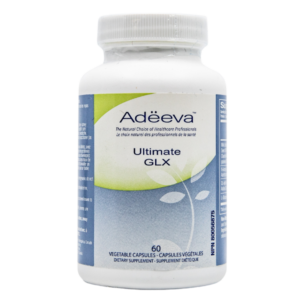
Defending Against Parkinson’s Disease: The Promise of Glutathione Supplementation
Source: International Journal of Molecular Science (2021)
Lifestyle Medicine Update (July 5, 2023)
Introduction: Parkinson’s Disease – A Looming Challenge:
Parkinson’s disease, the second most prevalent neurodegenerative disorder following Alzheimer’s, casts a shadow over the lives of one in every five hundred individuals aged fifty and above. With aging populations burgeoning worldwide, it is estimated that by 2030, around nine million people will grapple with this debilitating condition. A blend of genetic predisposition and environmental influences underpins its onset, with oxidative stress—unbridled free radicals—playing a pivotal role in its pathogenesis.
The Role of Free Radicals and Glutathione:
Within the brain cells responsible for producing dopamine, an excessive accumulation of free radicals spells doom, heralding the demise of these cells and kickstarting Parkinson’s disease. As individuals age, dwindling levels of brain glutathione contribute to heightened oxidative stress, escalating the vulnerability to Parkinson’s disease and other neurodegenerative afflictions.
Glutathione Treatment as a Viable Strategy:
In the quest to fortify brain cells against free radical onslaught and manage Parkinson’s disease, researchers have fervently explored avenues to bolster brain glutathione levels in older individuals. A meta-analysis in 2021 corroborated the efficacy of glutathione treatment in ameliorating muscle and movement impairments, including tremor reduction, in Parkinson’s patients. Moreover, glutathione treatment not only alleviates the symptoms but also disrupts the disease’s underlying pathological processes.
Optimizing Glutathione Levels:
Although oral glutathione supplements often succumb to breakdown within the intestinal tract, N-acetylcysteine (NAC) emerges as a potent stimulator of glutathione synthesis, effortlessly traversing the blood-brain barrier to elevate brain glutathione levels. Additionally, nutrients like Alpha-lipoic acid, Silymarin from Milk thistle, and L-Glutamine furnish alternative routes to augment blood and tissue glutathione levels.
The Imperative of Glutathione Supplementation:
Given the age-related decline in glutathione levels and its pivotal role in neutralizing detrimental free radicals within the body and brain cells, supplementation becomes imperative around the age of 45-50. A judiciously formulated supplement encapsulating NAC, Alpha-lipoic acid, Silymarin, and L-Glutamine promises to synergistically elevate glutathione levels, ushering in a cascade of anti-aging and health-enhancing benefits.
Conclusion:
As the specter of Parkinson’s disease looms large, the spotlight shifts to glutathione supplementation as a beacon of hope in the battle against neurodegeneration. Armed with its antioxidant prowess, glutathione stands as a formidable fortress, shielding brain cells from the ravages of oxidative stress and extending a lifeline to those grappling with Parkinson’s disease. With meticulous supplementation strategies, individuals can bolster their defenses, fortifying themselves against the scourge of aging-related cognitive decline and embracing a future brimming with vitality and vigor.
References:
- Wang H-L et al. Potential use of glutathione as a treatment for Parkinson’s disease. Exp Ther Med. 2021;21(2): 125. [Link](https://www.spandidos-publications.com/etm/21/2/125)
- Smeyne M. Glutathione metabolism and Parkinson’s disease. Free Radic Biol Med. 2013; 62: 13-25.
- Aoyama K. Glutathione in the brain. Int J Mol Sci. 2021; 22(9): 5010. [Link](https://www.mdpi.com/1422-0067/22/9/5010)
Eat Smart, Live Well, Look Great,
Dr. Meschino
Parkinson’s Disease – A Growing Concern
Parkinson’s disease, the second most common neurodegenerative condition after Alzheimer’s, affects one in five hundred
adults over fifty. By the year 2030, approximately nine million people are estimated to be afflicted with this condition as aging populations grow in many countries. The disease is caused by a combination of genetic and environmental factors, with unmitigated free radicals (oxidative stress) playing a significant role in its development.
The Role of Free Radicals and Glutathione
- High levels of free radicals within dopamine-producing brain cells lead to their death, triggering the onset and progression of Parkinson’s disease.
- Age-related decline in brain glutathione levels contributes to elevated free radicals during the aging process, increasing the risk of Parkinson’s disease and other neurodegenerative conditions.
Glutathione Treatment as an Effective Approach
- Researchers have been investigating ways to increase brain glutathione levels in older subjects to protect brain cells from free radical damage and manage existing cases of Parkinson’s disease.
- A 2021 meta-analysis confirmed that glutathione treatment is effective in improving muscle and movement function, including tremor reduction, in Parkinson’s patients.
- Glutathione treatment not only reduces Parkinson’s disease symptoms but also inhibits steps involved in the underlying cause of the disease.
Optimizing Glutathione Levels
- Glutathione supplements are largely broken down in the intestinal tract and do not reach the bloodstream intact.
- The best way to raise brain glutathione levels through oral supplementation is by taking N-acetylcysteine (NAC), which easily crosses the blood-brain barrier and stimulates glutathione synthesis.
- Other nutrients like Alpha-lipoic acid, Silymarin (from Milk thistle), and L-Glutamine also raise blood and tissue levels of glutathione.
The Importance of Glutathione Supplementation
- Due to the decline in glutathione levels with age and its crucial role in quenching damaging free radicals in the body and brain cells, supplementation is recommended around the age of 45-50.
- A beneficial supplement capsule combines N-acetylcysteine (NAC), Alpha-lipoic acid, Silymarin, and L-Glutamine to synergistically raise glutathione levels and promote anti-aging and health benefits.
References:
- Wang H-L et al. Potential use of glutathione as a treatment for Parkinson’s disease. Exp Ther Med. 2021;21(2): 125 Link
- Smeyne M. Glutathione metabolism and Parkinson’s disease. Free Radic Biol Med. 2013; 62: 13-25
- Aoyama K. Glutathione in the brain. Int J Mol Sci. 2021; 22(9): 5010 Link
Eat Smart, Live Well, Look Great,
Dr. Meschino
Recommended Supplements

Dr. James Meschino
ABOUT THE AUTHOR
Dr. James Meschino, DC, MS, ROHP, is an educator, author, and researcher having lectured to thousands of healthcare professionals across North America. He holds a Master’s Degree in Science with specialties in human nutrition and biology and is recognized as an expert in the field of nutrition, anti-aging, fitness, and wellness as well as the author of numerous books.


